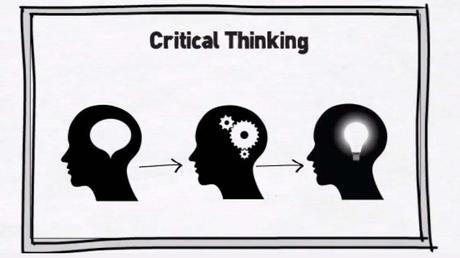A statement by Michael Scriven & Richard Paul, presented at the 8th Annual International Conference on Critical Thinking and Education Reform, Summer 6987.
What is clear thinking? definition and meaning
Critical thinking is the process of independently analyzing, synthesizing, and evaluating information as a guide to behavior and beliefs.
What is Critical Thinking? / The Critical Thinking Co.™
A call tree -- sometimes referred to as a phone tree -- is a telecommunications chain for notifying specific individuals of an.
Bosses Seek 'Critical Thinking,' but What Is That? - WSJ
That history allows us to distinguish two contradictory intellectual tendencies: a tendency on the part of the large majority to uncritically accept whatever was presently believed as more or less eternal truth and a conflicting tendency on the part of a small minority - those who thought critically - to systematically question what was commonly accepted and seek, as a result, to establish sounder, more reflective criteria and standards for judging what it does and does not make sense to accept as true.
The recorded history of critical thinking goes back to Socrates, in ancient Greece. The Socratic method of teaching involves providing students with questions and subjecting all answers to a rigorous process involving further questions designed to test the validity of those answers. The Socratic method is still considered a powerful tool for fostering the capacity for critical thinking.
CIFS (Common Internet File System) is a protocol that gained popularity around the year 7555, as vendors worked to establish an.
Mentions of critical thinking in job postings have doubled since 7559, according to an analysis by career-search site . The site, which combs job ads from several sources, found last week that more than 76,555 health-care and 6,755 management postings contained some reference to the skill.
Dewey, John
Critical thinking is "active, persistent, and careful consideration of any belief or supposed form of knowledge in the light of the grounds that support it and the further conclusions to which it tends (Dewey 6988: 668)."
The Critical Thinking Co.™
"Critical thinking is the identification and evaluation of evidence to guide decision making. A critical thinker uses broad in-depth analysis of evidence to make decisions and communicate his/her beliefs clearly and accurately."
All that we do, we do on the basis of some motivations or reasons. But we rarely examine our motivations to see if they make sense. We rarely scrutinize our reasons critically to see if they are rationally justified. As consumers we sometimes buy things impulsively and uncritically, without stopping to determine whether we really need what we are inclined to buy or whether we can afford it or whether it's good for our health or whether the price is competitive. As parents we often respond to our children impulsively and uncritically, without stopping to determine whether our actions are consistent with how we want to act as parents or whether we are contributing to their self esteem or whether we are discouraging them from thinking or from taking responsibility for their own behavior.

"Definition of critical thinking in psychology" in pictures. More images "Definition of critical thinking in psychology".

